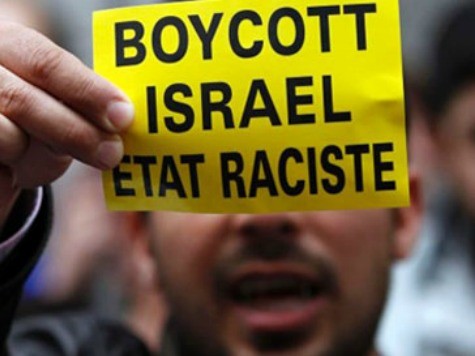
A 27-year-old Islamic woman named Mais Ali-Selah will graduate at the top of her medical school class at the Technion in Israel. She was raised in a small village outside of Nazareth, in Israel’s Galilee.
Diana Bletter at the Huffington Post writes about the significance of Ali-Selah’s success:
Ali-Selah’s academic excellence not only marks her own personal achievement but also proves that contrary to propaganda spouted by proponents of the BDS (Boycott, Divestment and Sanctions) Movement — whose latest convert is Stephen Hawking — an academic boycott of Israel is the wrong approach to solving the Israel-Arab conflict. Moreover, it ultimately hurts the very people it claims to help. Ali-Selah put it best when she said, “An academic boycott of Israel is a passive move, and it doesn’t achieve any of its purported objectives.”
According to Bletter, Ali-Selah struggled through her first class at the Technion in Haifa, northern Israel, which she describes as Israel’s version of M.I.T. Though she studied Hebrew from elementary school through high school, Ali-Selah rarely used the language in the mostly Arab area around Nazareth, resulting in a limited vocabulary.
After finally making some headway with her language skills and rising to the top of her class, in 2011 Ali-Selah became one of eight students from around Israel who were presented with academic awards of excellence at the Knesset, Israel’s Senate.
Ali-Selah attributes her academic drive both to “genes” and “family background.” Her mother, Fahima, returned to school after raising four children to complete her college education and is currently working toward her doctorate in education.
Bletter notes that Ali-Selah’s paternal grandfather died when her father was a high school senior, forcing him to skip college to support his younger siblings.
Ali-Selah explained that the atmosphere in her village Jaffa-Nazareth is liberal, and many of the residents there are supportive of young women furthering their education. Still, she said that she knew of only one female Arab doctor in her village, so she decided to pursue Obstetrics/Gynecology because she knew that many Arab women would prefer seeing a female doctor rather than a male.
Adding that she hopes to make a contribution to Israeli-Arab society, Ali-Selah is aware that she is perceived as a role model to other young Arab women, and that she is essentially breaking through common stereotypes.
“The media emphasizes negative things about Muslims and does not emphasize the positive,” Ali-Selah said. She believes as well, however, that extremists are co-opting Islam and radicalizing it as they also influence people’s perceptions about Islam and women’s roles.
“There is nowhere in the Koran that states women should not study,” explained Ali-Selah. She added that the Koran emphasizes that women must learn because they are the ones to educate the children. Further, she said that there are no Islamic laws stating that women need to wear long robes or cover their faces.
“If people’s socio-economic situation improves, they become more educated and enlightened,” Ali-Selah said. “Take away people’s food, and they become religious.”
Ali-Selah’s husband, Nidal Mawasi, who comes from Baqa al-Gharbiya, an Arab city in central Israel, agrees with her. Mawasi graduated from Technion’s Medical School in 2008, and they are now expecting their first child.
Bletter writes of the reaction of others to the fact that Ali-Selah studied in Israel:
On trips to Europe, Ali-Selah said that people she met were surprised to learn that Israeli Arabs studied engineering and medicine in Israel, and that they lived among Jews. This lack of awareness helps the BDS Movement win misguided supporters. Boycotters like Roger Waters repeat a falsehood — that Israel is an apartheid state — and deny a fundamental truth: Arabs, in particular Arab women, have more freedom, liberties and academic opportunities in Israel than in any Arab country. Yes, they do.
Ali-Selah suggests that, rather than an academic boycott, which would clamp down on those who want to educate others, academic life should be encouraged within the Palestinian Authority and academic ties with Palestinian universities strengthened through the planning of joint research projects with Palestinian scientists. Ali-Selah would also encourage admitting more Palestinian scholars to European and American universities for academic programs.
Ali-Selah urges individuals such as Stephen Hawking and others who wish to advance peace in the Middle East to support people like herself — Israel’s success stories — and to pressure Arab countries to imitate the freedoms and democracy found in Israel. The boycott, she said, will only end up restricting the work of both Jews and Arabs.

COMMENTS
Please let us know if you're having issues with commenting.